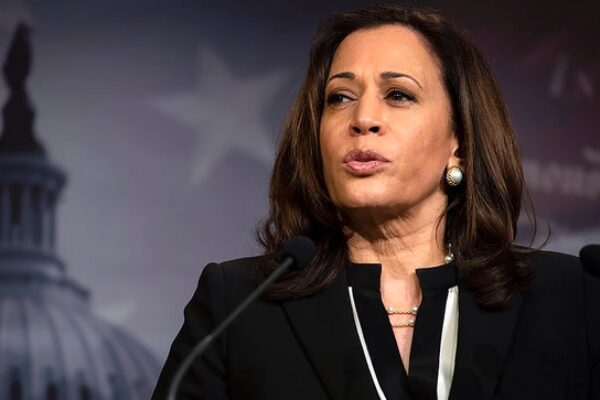The presumptive Democratic vice-presidential nominee, U.S. Sen. Kamala Harris, is a Black-Asian first-generation American woman. Before she was selected, many questioned Joe Biden’s decision to choose a woman as his running mate: Why couldn’t he just pick the best candidate, period? But “best” isn’t one objective reality. It evolves with time and circumstances.
The first Asian and the first woman of color to appear on the presidential ticket of a major political party challenges us to think about what we mean by best. And how we define best shapes our responses to the challenges we face.
Even people who support a female candidate in theory can be lukewarm toward the actual contenders. They complain that the candidate is weak or too abrasive or sounds angry. Why doesn’t she talk about gender more? Or, why can’t she stop talking about it? Somehow, every candidate falls short.
Many times, female leaders are subject to harsher scrutiny than male ones. Harris’ energetic discharge of her constitutional duties as a U.S. senator and prosecutor makes her “nasty,” or the superficially more respectable “ambitious.” But men who ask tough questions are just doing their job. We rarely call ourselves to account for such double standards, even when we are happy to point them out in others.
If we find something wrong with every female candidate who comes along, do we genuinely want to elect a woman? Or do we only support the concept?
We hear the same kinds of complaints about the ongoing protests against systemic racism. A majority of Americans support the concerns that motivate the protesters. But some then recoil from the protests they see on their local news. Why are the protesters damaging property? (They rarely do.) We don’t need violence — why can’t the protests be peaceful? (They mostly are.)
Why can’t we all just get along, as we dance together down the yellow brick road to a fair and equitable society? That yellow brick road is a fantasy. If we insist on the perfect candidate, or the perfect protest, we’ll stay right where we are. And most of us aren’t happy with the state of our country these days.
Since perfect will never be an option, how do we work toward the “more perfect union” envisioned in the U.S. Constitution? Choosing a woman to run for vice president is one step forward. Protesting against racism is another.
Such assertive measures make some people uncomfortable. But business as usual has failed too many Americans for too long. One hundred years ago this month, the 19th Amendment granted women the right to vote. Today, women are still drastically underrepresented in the federal government. Women make up less than a quarter of the current Congress, even though this is the most diverse Congress in history.
If present trends continue, it will take another 100 years to achieve education, health, political and economic gender equity. And it will take 200 years to achieve economic gender equity in particular. Black Americans will not reach economic equity with their white neighbors for even longer.
This is bad for everyone. Study after study shows that more diverse groups are not just fairer. They do better work. They make better decisions and earn more money. And research suggests that women may be more effective than men at leading diverse countries like ours.
We can’t wait another century to enjoy the benefits of diverse decision-making and female leadership. But we’re making some progress.
Biden’s selection process for his running mate improved the standing of everyone he considered. Just as presidential contenders become better known and more widely respected even if they don’t win, all the vice-presidential candidates are now stronger leadership material than they were before.
Anti-racism protests in all 50 states have opened conversations about the lived reality of racism among a greater variety of Americans than ever before. It is an open question whether these conversations will translate into real progress in combating racism. But we will certainly never address problems that we do not discuss.
In politics, as in our striving for a more equitable society, best does not mean perfect. It means progress.
Deborah Beck is an associate professor of classics at The University of Texas at Austin.
A version of this op-ed appeared in The Hill.




